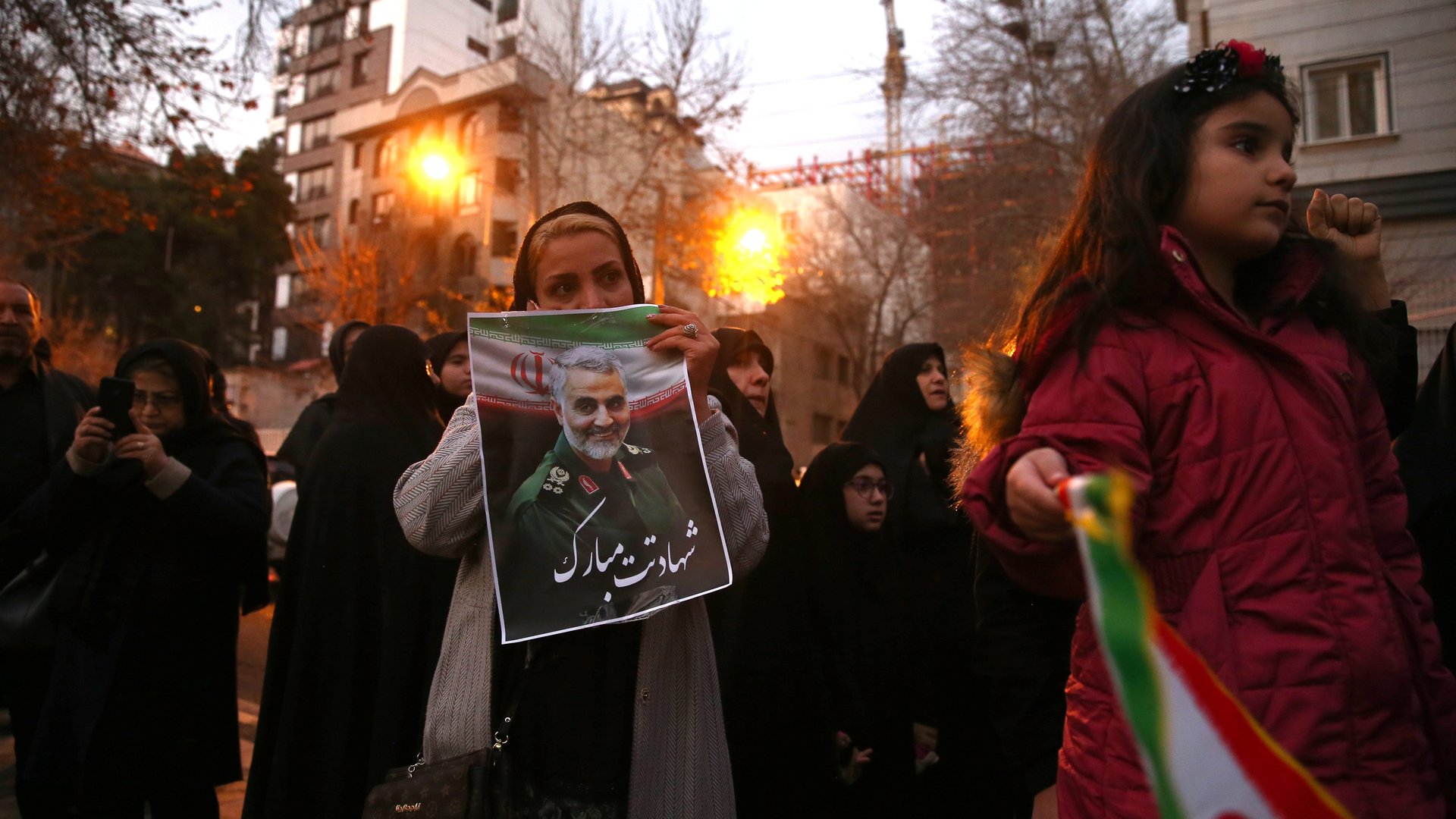One thing unites Americans and Iranians: Nobody wants a war
US president Donald Trump’s critics spent the decade’s end worrying a presidential tweet could trigger World War III. But as soon as 2020 put a foot in the door, it was a good old-fashioned targeted killing that put everyone on edge.


US president Donald Trump’s critics spent the decade’s end worrying a presidential tweet could trigger World War III. But as soon as 2020 put a foot in the door, it was a good old-fashioned targeted killing that put everyone on edge.
The US Department of Defense confirmed it killed major general Qassem Soleimani, the head of Iran’s elite Quds Force unit, on Friday. Soleimani is one of the most important figures in Iran, and has shaped events across the Middle East for decades, often at America’s expense.
For the US government, Soleimani was a terrorist and war criminal. For the Iranian regime, he was a hero, whose popularity stretched beyond regime supporters.
“If you asked me to find a figure from the regime whose popularity went beyond it, he would be it,” said Arash Azizi, a political commentator from Iran and PhD candidate of history and Middle Eastern studies at New York University.
Azizi—who himself considers Soleimani a war criminal and opposes Khamenei’s leadership—said that through conversations with his Iranian community, both in the United States and in Iran, he found that a large number of people were mourning the general. Still, he thinks his popularity is exaggerated by the regime’s sources: “He was not this national figure loved by everyone. No one in the regime is,” he said.
Whether they loved or hated Soleimani, however, Iranians likely share the same position when it comes to war with the United States: They fear it. “The threat of war is what really unites Iranians,” Azizi said. Having witnessed the impact of America’s intervention in Iraq, even those who oppose the regime know a war in Iran would have devastating consequences. “I can’t see the opposition supporting a military attack in Iran.”
In fact, Azizi said he believes that retaliation from Iran, to the extent that it escalates the conflict and threatens reprisals from the Americans on Iranian territory itself, is highly unlikely.
“Ali Khamenei is 80 years old, and a prudent leader,” he said. “He doesn’t make rushed decisions.” Attacking American interests would amount to suicide, he said. American military power is so disproportionate compared to Iran that Khamenei would essentially be inviting the destruction of his own country.
The possibility of an all out conflict is unlikely to excite Americans either, no matter their politics. US secretary of state Mike Pompeo has already released statements calling for de-escalation. And Trump himself campaigned in 2016 to withdraw troops from Syria, Afghanistan, Iraq and elsewhere. According to recent polls, only about 18% of Americans would support the president if he went to war, making it a risky proposition in an election year.
Things seem hot right now. Khamenei has threatened “forceful revenge” and Trump is sending thousands more troops to the region. But, ultimately, a war is probably not in either leader’s interests.